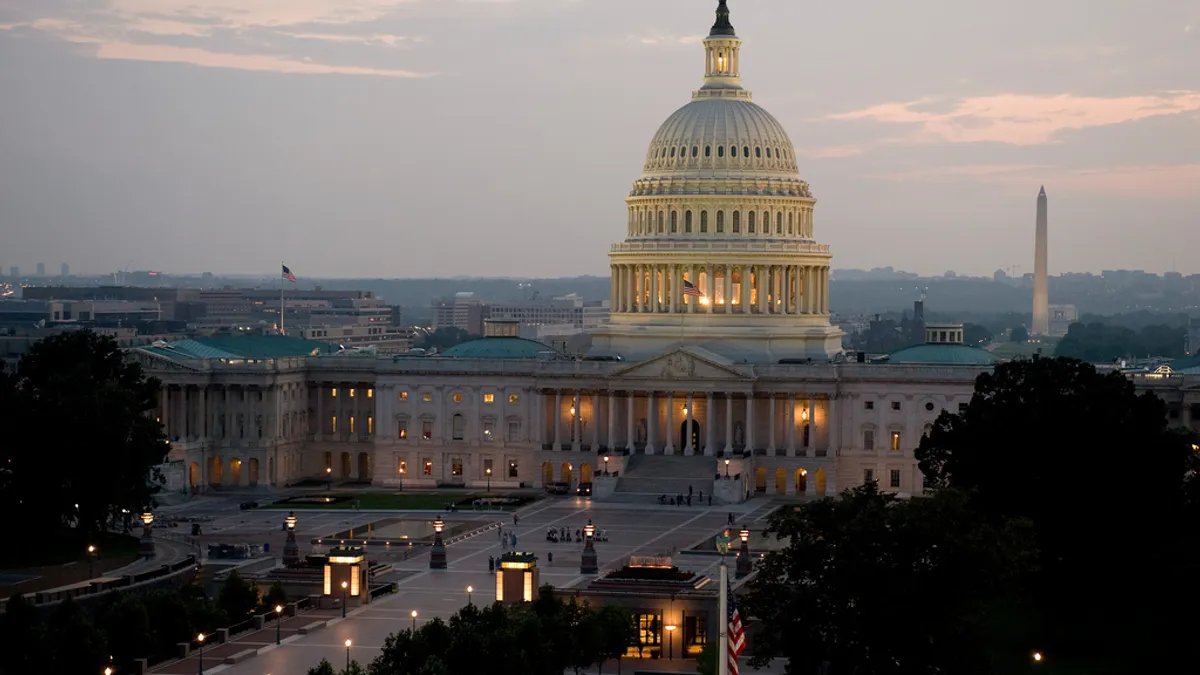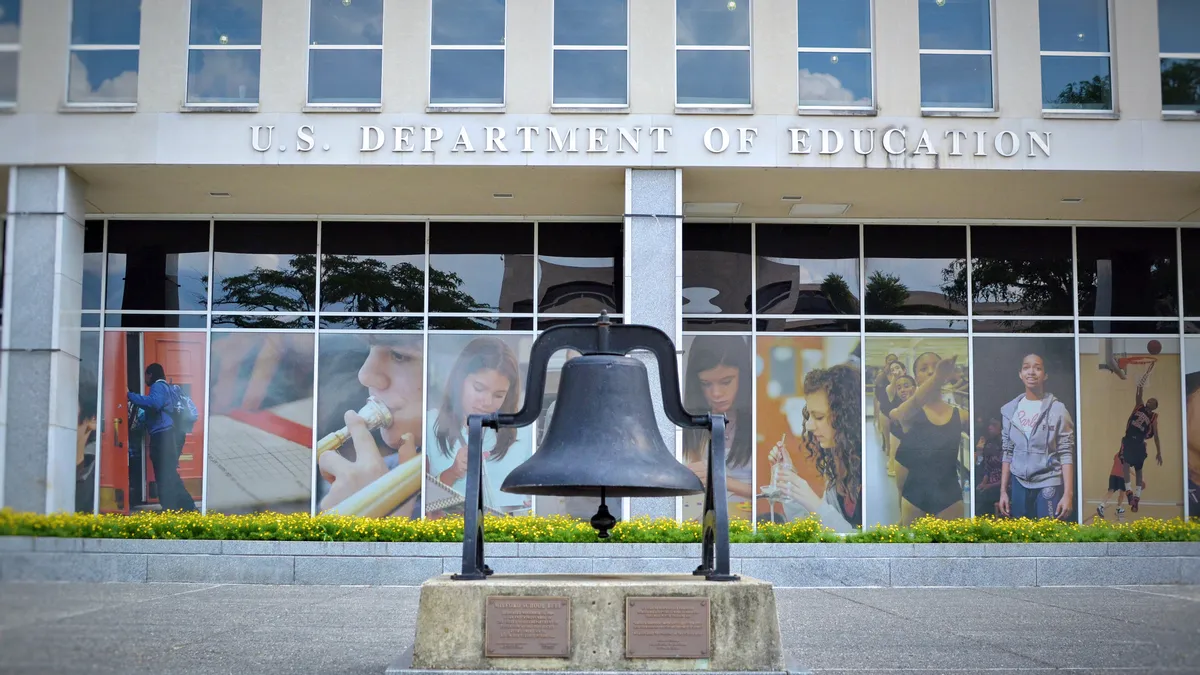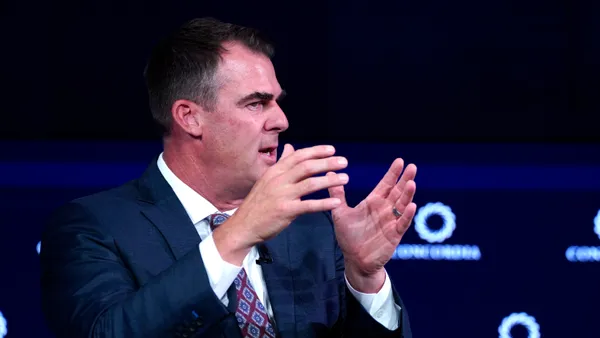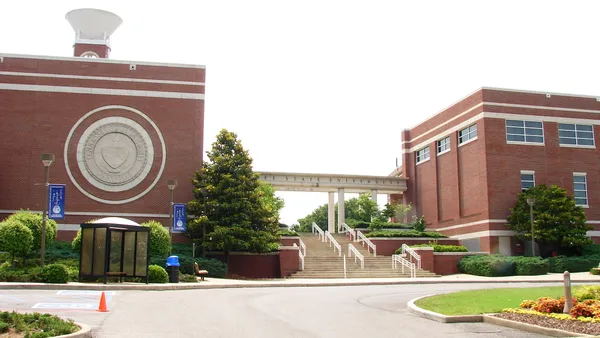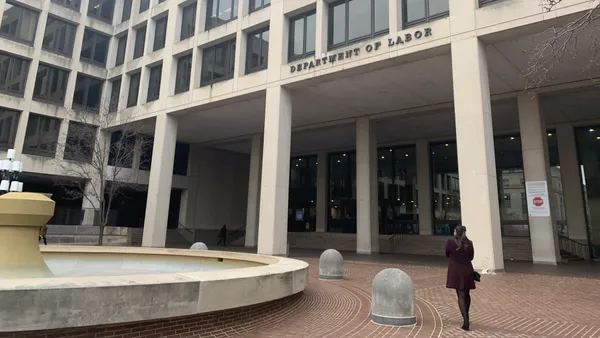Dive Brief:
- As Congress considers updating the law guiding federal policy on higher education, college officials across the country have offered a set of three dozen recommendations related to student loans and aid, access and accountability, and the collection of key data.
- The Higher Education Committee of 50's ideas for reauthorization of the Higher Education Act (HEA) include: streamlining the Free Application for Federal Student Aid; supporting expansion in online instruction; eliminating higher ed tax credits and using those funds to expand Pell Grant access; and reverting the 90/10 rule ratio to 85/15.
- It also wants to develop a broad Student Unit Record Data System that would collect and disseminate student-level data, stripped of personal details, to provide better information about national, regional and institutional outcomes.
Dive Insight:
The HEA was last reauthorized in 2008 and has since fallen off its pace of updates every few years, according to a review of the process and its current prospects by The Atlantic. Current cross-aisle talk among key legislators could be threatened by the reality of their different political positions, the publication concluded.
Previous HEA reauthorization bills from Democrats and Republicans failed to gain bipartisan support. Two versions discussed last year — the Democrats' Aim Higher Act and the Republicans' Prosper Act — found common ground in the need for reform in higher ed but differed in their approach, particularly around managing federal financial aid offerings.
The Chronicle of Higher Education reported last summer that reauthorization "might be years away."
There have been signs of bipartisanship on some issues. This week, separate bipartisan bills were introduced in the House and Senate around gathering and disseminating student-level college outcomes data. Education committees in both chambers have also set up hearings to discuss HEA reauthorization.
And the president's budget proposal also encouraged legislators to take on the issue, saying the funding blueprint would "support congressional efforts to modernize and reauthorize the Higher Education Act to be responsive to the needs of both students and employers." (Though the cuts it called for were largely unpopular.)
Last week, the House education committee released a report arguing that college degrees are worth the investment. It cited lifetime earnings gains for graduates as well as a bigger economic impact for states that spend more on postsecondary education. However, it notes, minority and low-income students still lack equitable access to higher ed.
Those concerns were amplified this week in discussions of the high-profile college admissions bribery scandal. The news of wealthy parents paying off college officials to admit their children raised questions around the influence of donations in securing coveted spots at elite institutions, the use of rankings and selectivity metrics to gauge an institutions' value, the admissions process for recruited athletes and the systemic inequities that make higher ed more accessible to some than to others.


